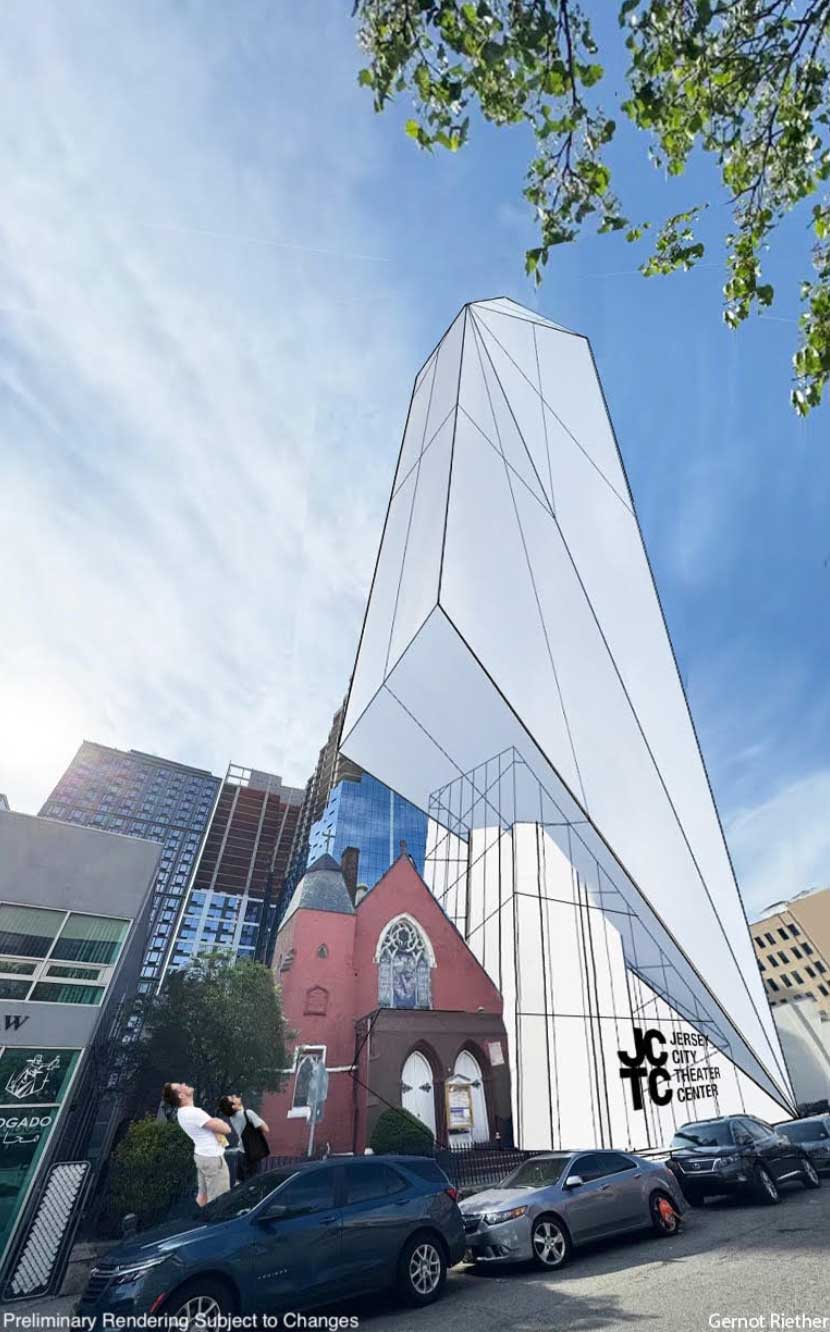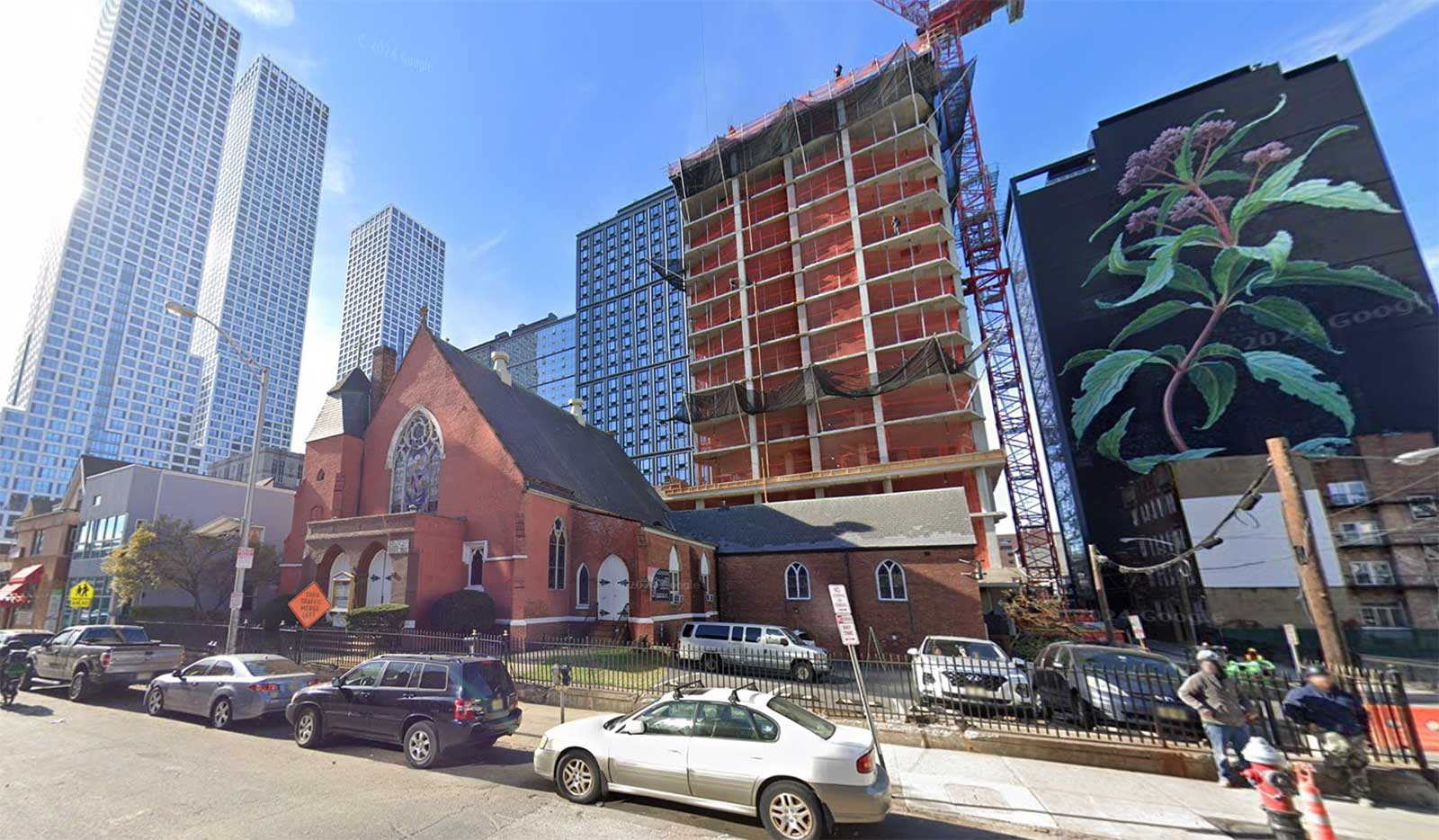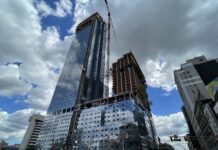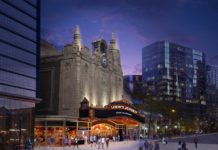
In a move set to reshape the city’s cultural landscape, the Jersey City Theater Center (JCTC) has announced a transformative arts and residential development at 575 Summit Avenue, within the Journal Square 2060 Redevelopment Area. The ambitious project aims to merge historic preservation with bold architectural innovation, establishing what is expected to become the tallest arts-focused cultural center in the world.
At the heart of the development is the adaptive reuse of a historic church on the site, which will be restored in accordance with national preservation standards.

The 15,000-square-foot landmark will become JCTC’s permanent home, anchoring a soaring 31-story mixed-use tower that will blend cultural facilities with affordable housing for artists.
According to JCTC, the new complex will encompass more than 86,000 square feet of performing arts space, including a main stage theater within the restored church, a black box cinema, a dedicated dance venue, and a theater for children and families.
Additional amenities will include rehearsal studios, art galleries, educational classrooms, artist accommodations, and a rooftop event space offering panoramic views of the New York metropolitan area.
The upper floors will house 98 income-restricted live/work units for artists – totaling 75,000 square feet of affordable residential space. The units will include studio, one-bedroom, and two-bedroom layouts designed to support creative professionals.
“I have spoken to the people involved in this project, and the arts will be good for the neighborhood,” said Ward C Councilman Richard Boggiano. “It will bring folks together and I know the center [Jersey City Theatre Center] will do quite well in the area.”
Programming at the center will reflect Jersey City’s diversity and global spirit, featuring international theater, music, contemporary dance, and film, alongside original productions by JCTC.
The center also plans to use its rooftop venue to host visual art exhibitions, artist residencies, family programming, and community events.
“This project is a once-in-a-generation opportunity to create a home for the arts that is not only globally significant but deeply rooted in the spirit of Jersey City,” said Olga Levina, Executive Producer of JCTC. “We’re restoring sacred ground while building a vibrant future.”
Plans for the Centre Pompidou in Jersey City, which was set to open on 2026, hit a major setback, as the high-profile cultural project has been indefinitely paused.
Once slated to open in 2026, the initiative is now on hold due to funding shortfalls and mounting concerns over its long-term financial sustainability.
The new artist facility would have been under a municipal proposed Special Improvement District (SID) tax that would charge $120 per residential unit on select properties, aiming to generate $1.2 million in its first year, as previously reported by Jersey Digs.
The tax would apply only to properties valued at $4 million or more, while apartment buildings with four or fewer units would be exempt. Speaking at a City Hall meeting, Jersey City Redevelopment Agency counsel Joe Baumann said a property worth $2 million would likely pay around $2,000 annually.
The development aligns with the Journal Square 2060 Redevelopment Plan by preserving a historic structure, advancing high-density mixed-use construction, expanding the city’s cultural infrastructure, and delivering deeply affordable housing.
Political support for the initiative includes Councilman James Solomon – currently a mayoral candidate – and Councilman Richard Boggiano, who are co-sponsoring the resolution set to go before the Jersey City Council on May 7.
The project is being spearheaded by Ben LoPiccolo Development Group, LLC, the firm behind the revitalization of White Eagle Hall. Architectural design is led by NJIT Professor Gernot Riether in collaboration with Jak Inglese Architecture & Engineering.
GRID Real Estate represented Ben LoPiccolo Development Group in the transaction.
JCTC plans to pursue funding through state programs such as NJ CAFE and ASPIRE, alongside private and institutional partnerships.
“This is more than just a building,” said Ben LoPiccolo. “It’s an engine for creativity, economic equity, and historic preservation. We’re building a legacy—and we welcome those who believe in the transformative power of the arts to join us.”


